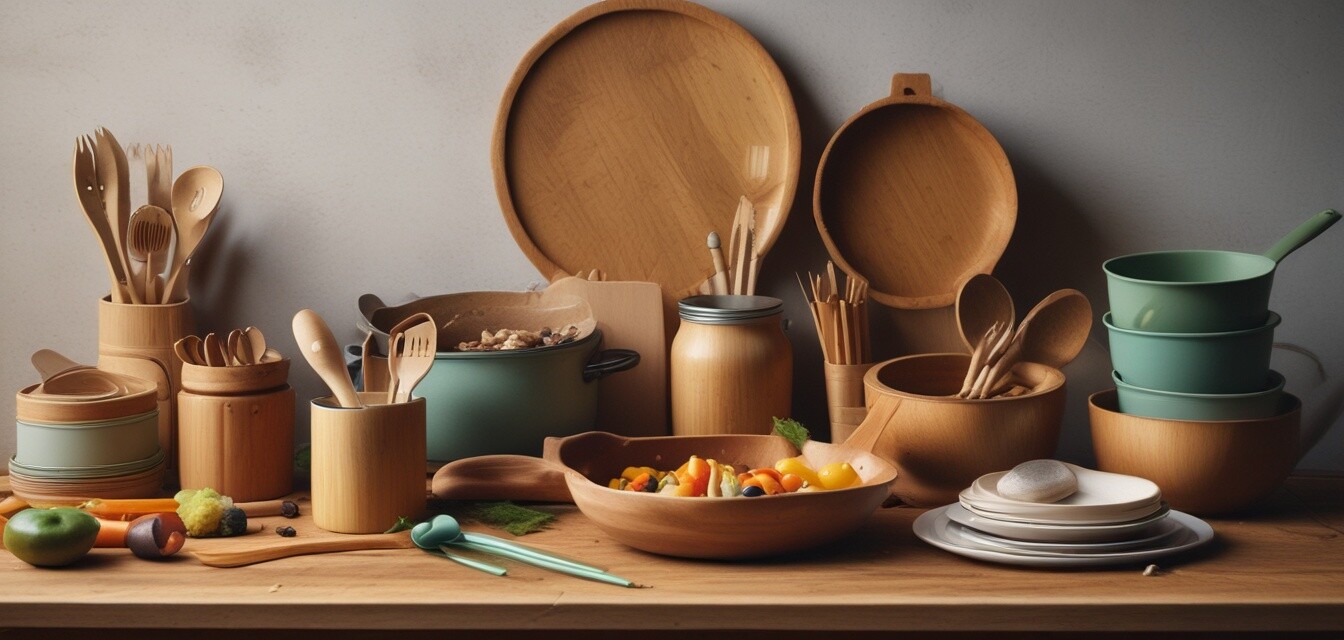
Sustainable Inspirations from Around the Globe
- Discover innovative sustainable kitchen practices from various cultures.
- Learn about eco-friendly materials used in kitchenware worldwide.
- Incorporate green habits from different traditions into your daily life.
- Find out how global initiatives promote sustainability in the kitchen.
- Explore products that reflect sustainable craftsmanship and materials.
As people become increasingly aware of environmental issues, sustainable practices have gained global visibility. Many cultures advocate for eco-friendly habits that serve the planet while enhancing our kitchen experiences. This article takes you on a journey through the world, exploring sustainable kitchen practices and innovative products that inspire eco-friendly habits. Get ready to rethink your approach to the kitchen with these globally inspired ideas!
Innovative practices from various cultures
Different cultures have developed unique practices that promote sustainability. Let's take a closer look at some of these innovative ideas that can inspire your kitchen habits.
| Culture | Practice | Eco-Friendly Material |
|---|---|---|
| Japanese | Zero-waste cooking techniques | Natural bamboo and wood |
| Indian | Using clay pots and dishes | Natural clay |
| Scandinavian | Foraging and seasonal eating | Recycled or upcycled materials |
| Mexican | Preservation of traditional methods in cooking | Locally sourced organic materials |
Zero-waste cooking techniques - Japan
In Japan, the concept of mottainai emphasizes respect for resources and minimizing waste. Japanese home cooks utilize every part of an ingredient, integrating scraps into broths, sauces, and other dishes. This practice not only reduces waste but also enhances flavor.
Using clay pots - India
Indian kitchens often feature traditional clay pots that lend a unique taste to food. Clay pots are not only biodegradable and non-toxic but also improve the nutritional quality of the food cooked in them, making them a sustainable choice.
Eco-friendly kitchenware materials
The materials used in kitchenware play a crucial role in sustainability. Here are some eco-friendly materials you can incorporate into your kitchen:
- Bamboo: Fast-growing and renewable, bamboo products are durable and stylish.
- Recycled glass: Perfect for dinnerware, recycled glass reduces waste and adds character.
- Stainless steel: Reusable and long-lasting, stainless steel replacements reduce disposable item use.
- Compostable materials: These biodegradable items break down safely, leaving no harmful residues.
Why it's essential to choose eco-friendly materials
Choosing eco-friendly materials dramatically decreases our carbon footprint. By opting for sustainable kitchenware and tools, we conserve energy, reduce pollution, and support ethical production practices.
Global initiatives promoting sustainability
Many organizations are working hard to foster sustainable practices in kitchens worldwide. Some of these initiatives include:
- Community-supported agriculture programs that connect consumers with local farmers.
- Education programs that teach cooking and preservation methods to reduce waste.
- Recycling and composting campaigns aimed at minimizing food waste.
Community-supported agriculture
By supporting local agriculture, communities can create sustainable food systems. This initiative encourages fresh ingredient use, reduces transportation emissions, and fosters a sense of community.
Incorporating global practices into your kitchen
Integrating sustainable practices from around the world into your own kitchen can be a fulfilling endeavor. Here are some tips to help you get started:
Tips for beginners
- Start composting your kitchen scraps to reduce waste.
- Incorporate bamboo utensils and cookware into your kitchen.
- Participate in local farmer's markets to support nearby producers.
- Practice meal planning to minimize food waste and save money.
- Explore foraging, if safe in your area, to connect with nature.
Celebrating sustainable craftsmanship
Beyond everyday kitchen practices, many artisans create beautiful, eco-friendly kitchenware. These products may include handmade ceramic items, bamboo utensils, and recycled glass dishes. By choosing to purchase these goods, you not only support sustainability but also celebrate craftsmanship and culture.
Pros
- Supports local economies and artisans.
- Enhances personal style with unique items.
- Encourages more sustainable habits in daily life.
- Contributes to reducing environmental impact.
Cons
- Potentially higher upfront costs compared to conventional kitchenware.
- Availability may vary by location.
- Requires commitment to change purchasing habits.
Conclusion
Sustainable practices and eco-friendly products from around the world offer an abundance of inspiration for your kitchen. By embracing these practices, not only do you positively impact the planet, but you can also enrich your daily life with unique, culturally-influenced kitchen experiences. Whether through utilizing local resources, engaging in community-supported practices, or simply choosing sustainable materials, each small step can lead to significant changes over time.
For more sustainable kitchenware options, explore our various product categories like bamboo kitchenware and compostable kitchen tools to find eco-friendly choices that align with your values.


